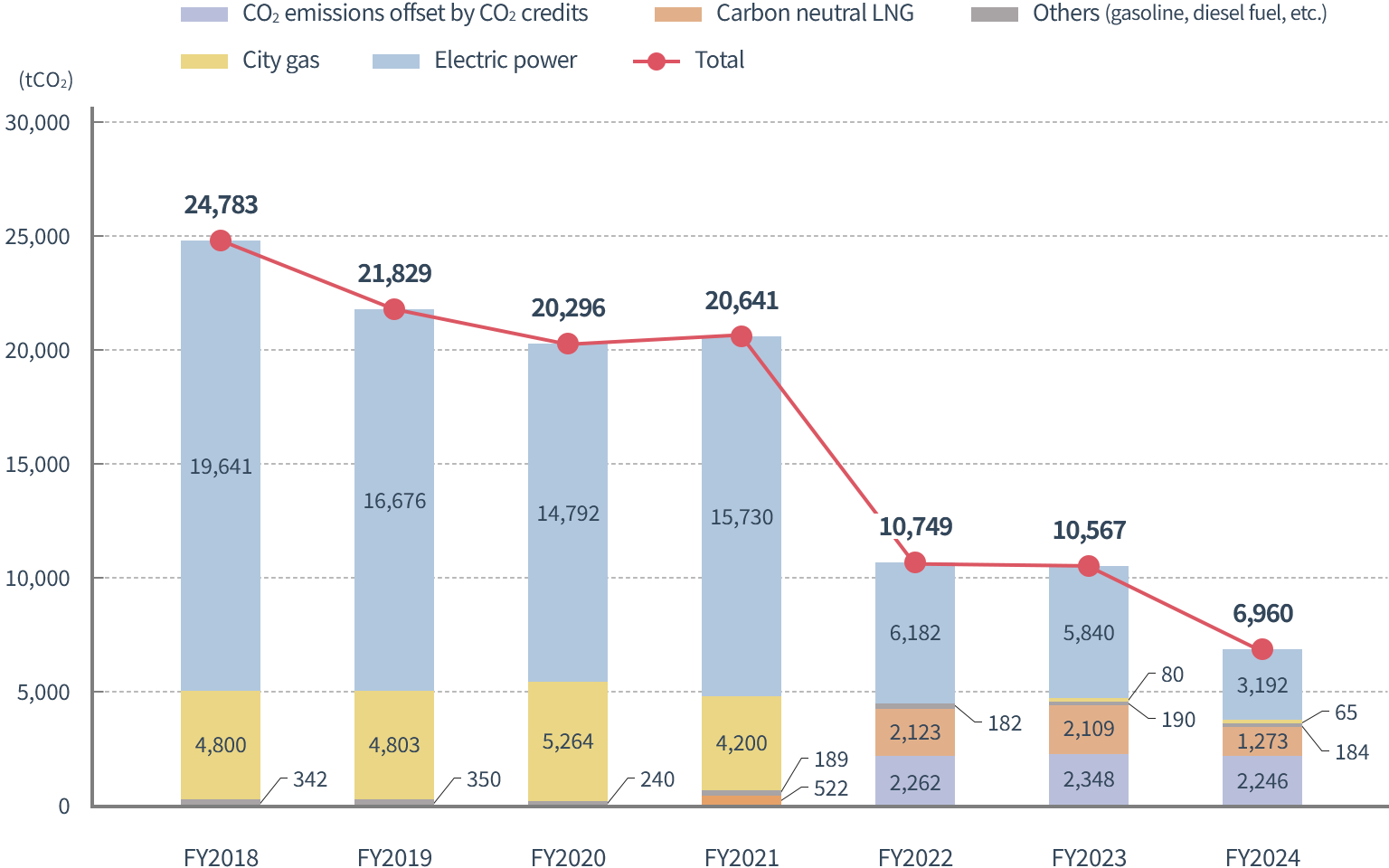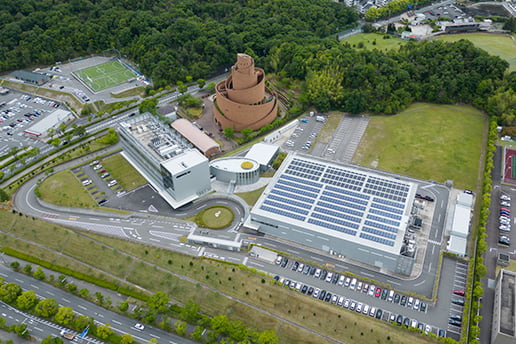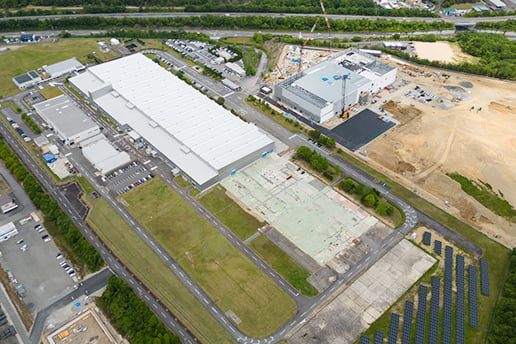Pursuing Carbon Neutrality
The domestic operating sites of the TATSUTA Group are actively engaged in achieving decarbonization targets as a member of the JX Advanced Metals Group, in alignment with international standards such as the Greenhouse Gas (GHG) Protocol.
- The JX Advanced Metals Group’s Decarbonization Target:
-
- Long-term target: Achieve net zero CO2 emissions (Scope 1, 2) in fiscal 2050
- Interim target: Achieve 50% reduction CO2 emissions (Scope 1, 2) in fiscal 2030 (vs. fiscal 2018)
CO2 emissions (Scope 1, 2) from the domestic facilities of the TATSUTA Group are projected to be reduced by approximately 90% compared to fiscal 2018 levels by fiscal 2025.
The Group remains committed to further reducing CO2 emissions (Scope 1, 2) and to enhancing its understanding of CO2 emissions (Scope 3).
- The TATSUTA Group CO2 emissions (Scope 1, 2, targeting the business sites and affiliated companies in Japan) in accordance with international standards (GHG Protocol)
-

Achieving carbon neutrality in the functional films business
In the functional films business where customer demand has been particularly high, we have been carbon neutral (Scope 1 and 2) since April 2022.
We have also worked proactively on renewable energy generation, installing solar power generation facilities at the TATSUTA Technical Center, Sendai Works, and Kyoto Works.


Promoting Energy Saving
We are improving the efficiency of production equipment and investing in energy saving,
proactively introducing equipment with high energy-saving performance.
Promoting investment to conserve resources and energy
In the fiscal year ended March 31, 2023, at the Osaka Works, we installed energy-saving motors when renewing drive control devices, contributing to an approximate annual power savings of 26,000kWh. At the Kyoto Works, automating air conditioning systems and reusing waste heat from deodorization equipment (in air conditioner reheaters) achieved an approximate annual power savings of 289,000kWh. At the Sendai Works, using automatic lighting reduced annual power consumption by 11,000kWh.

Reducing expected effect of rationalization of energy use by 1% or more
The expected effect of rationalization of energy use is the expected effect of energy savings achieved by introducing renewable energy, renewal to energy-saving equipment, and other measures, calculated as a reduction in crude oil equivalent from the previous year. All employees are involved in these activities.
- For inquiries about ESG
